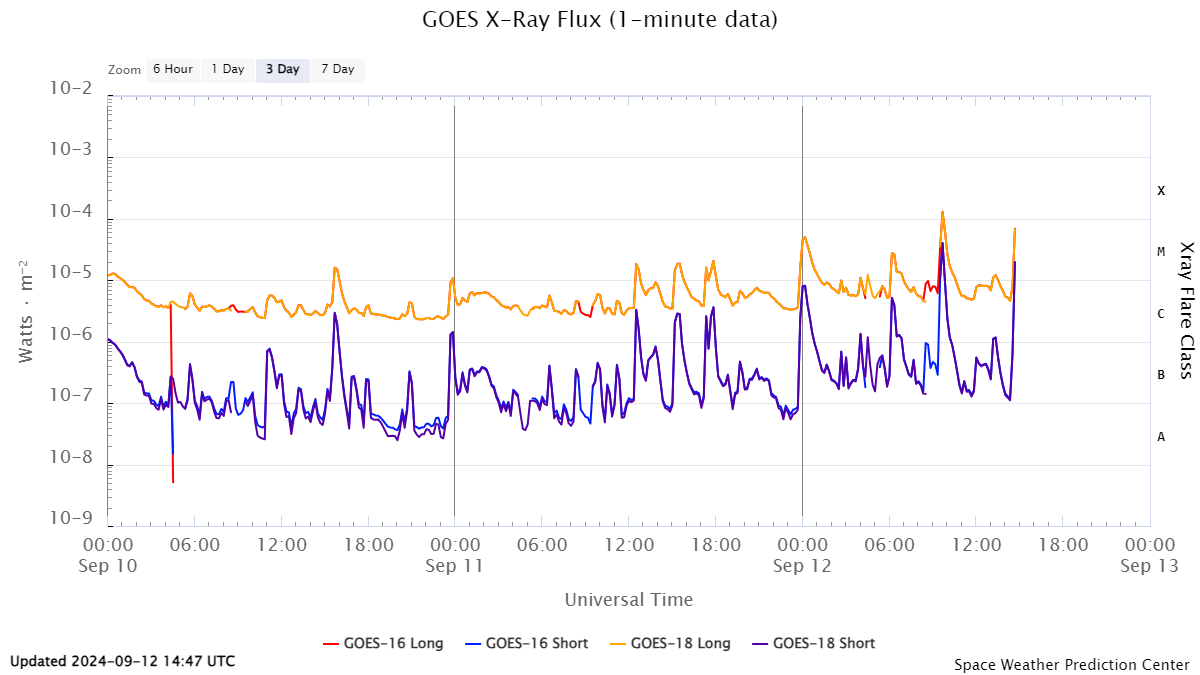Geomagnetic storm forecast - 12th September 2024
What Has Happened?
The coronal mass ejection (CME) that left the Sun on 10th Sep arrived this morning, 12th Sep. The CME carried significant southward interplanetary magnetic field, and the disturbance is currently ongoing, causing geomagnetic G2 STORM conditions.
The Sun has continued at moderately active levels with multiple M-class flares, an X-class flare, and several CMEs in the last few days. We anticipate at least one of the CMEs to be Earth-bound, and arrive early in the morning of 14th Sep. This is likely to result in prolonged enhancements in geomagnetic activity, hence further STORM periods could follow.
Assuming clear dark skies, there is an increased chance of seeing the aurora from 12th to 14th Sep. Those in Scotland, northern England and Northern Ireland have a better chance if the weather is favourable.
Sign-up to receive Geomagnetic Disturbance Alert emails.
Follow us on Twitter:
Follow @BGSauroraAlert for more occasional aurora alerts.
Follow @BGSspaceWeather for daily space weather forecasts.
Glossary
- BGS
- The British Geological Survey is a geoscience research centre that is part of UK Research and Innovation (UKRI) and affiliated to the Natural Environment Research Council (NERC).
- CME or Coronal Mass Ejection
- The eruption of a portion of the outer atmosphere of the Sun into space, caused by rapid changes in its magnetic field. Often occurs along with a solar flare.
- Solar Flare
- Energy released by the explosive reorganisation of magnetic fields within the Sun's atmosphere.


